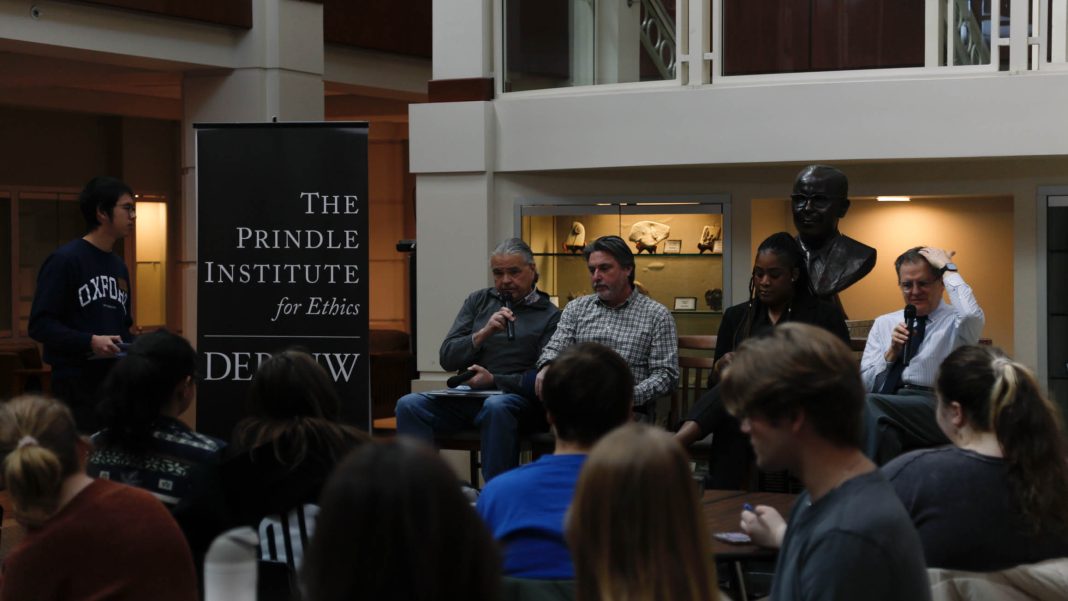Space exploration is exciting. But is it worth it? There seem to be more than enough important problems worth solving here on earth. In light of that, should we rpend resources exploring beyond our olanet? (The Prindle Institute for Ethics)
With a promising topic of discussion, the Prindle Institute successfully hosted a lunch panel on Wednesday, March 30, about the ethics of space exploration. The panel fostered an engaging environment for dialogue on the ethics of space exploration under the navigation of a Hillman Intern of the Prindle Institute. Invited to the panel were Professor Harry Brown, Professor of English; Assistant Professor of Business Amy Eremionkhale; Professor of Physics and Astronomy Howard Brooks; and Professor of Peace and Conflict Studies Glenn Kuecker–all of whom provided diverse perspectives on the topic.
The discussion revolved around pressing ethical inquiries, with one of the central questions being:
“Is it permissible for humans to take resources from Earth for space exploration?”
The diversity of opinions among the panel of professors, each with their distinct viewpoints on space exploration, facilitated a rich and thought-provoking conversation that left the participants with lots to think about. As strong opposing opinions intersected, it became evident that the collision of ideas often leads to better judgments. The audience was introduced to diverse viewpoints, from the ethical complexities of colonization to the economic incentives driving exploration.
Professor Kuecker emphasized the importance of considering the implications of space exploration through different lenses, including those of indigenous communities and philosophical traditions such as Buddhism. Meanwhile, Professor Brooks stressed humanity's intrinsic curiosity and argued for the moral obligation to pursue space exploration, albeit with a mindful consideration of its environmental impact. Professor Brown underscored the relevance of science fiction and environmental literature in framing discussions about space exploration, highlighting the ethical implications of colonizing other planets, and Professor Eremionkhale emphasized the role of incentives in driving exploration and the potential risks of colonization. Collectively, the panelists grappled with questions about the moral justification for exploiting resources in space and the potential threats posed by human presence beyond Earth.
The audience's engagement further enhanced the depth of the discussion, questioning the underlying motives behind space exploration. They posed the concern of whether exploration efforts in space were primarily executed to serve calculated political and economic goals. By actively participating in the dialogue and challenging the panelists to scrutinize the motives behind space exploration, the audience contributed to an even more exciting discussion of the ethical dimensions of this topic.
Due to time constraints, the fascinating chat about space ethics had to be wrapped up before noon, when classes resumed. While this particular conversation may have ended, we are already looking forward to the next round of deep dives into big questions. Stay tuned for more thought-provoking panels hosted by the Prindle Institute in the coming months!

